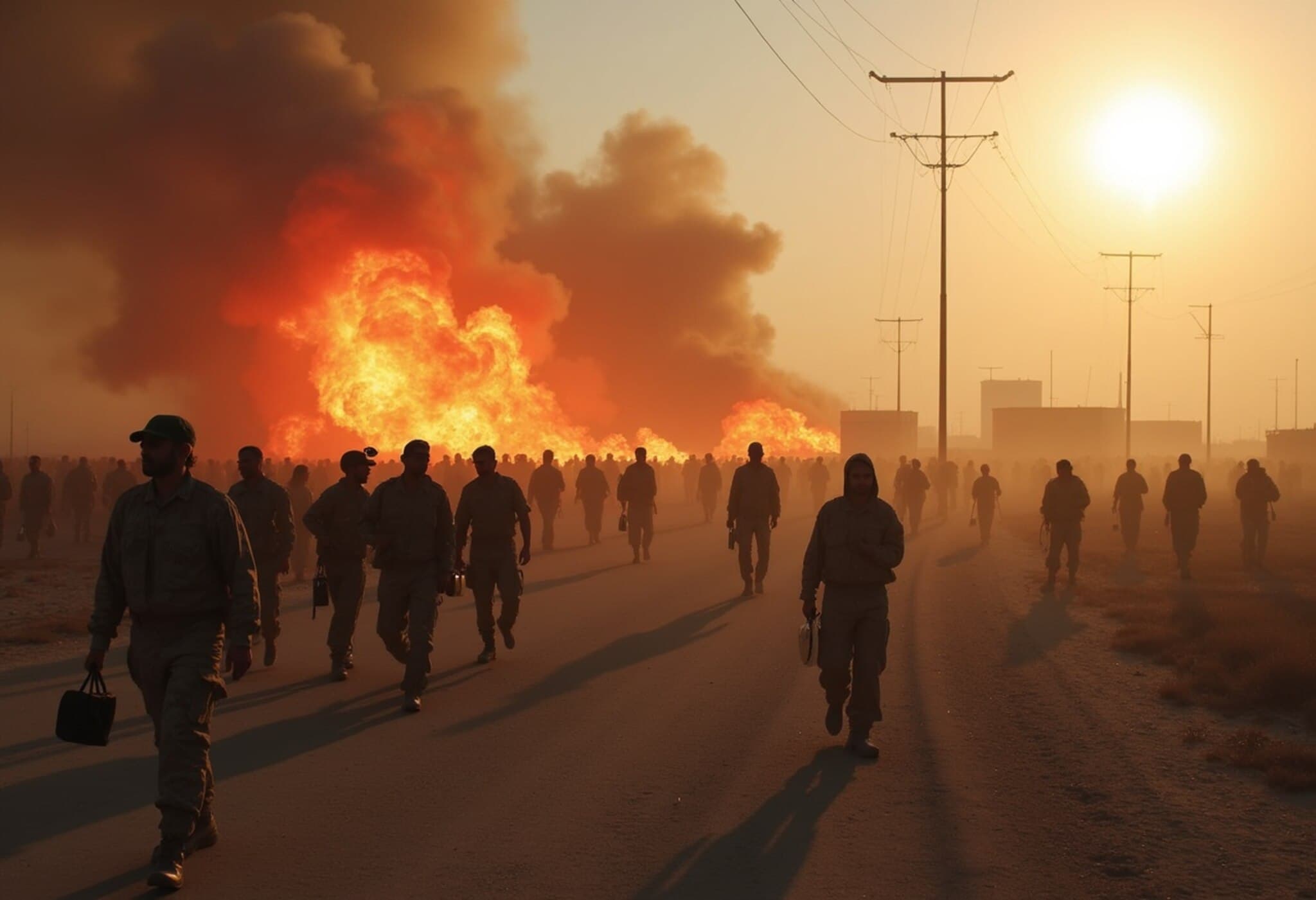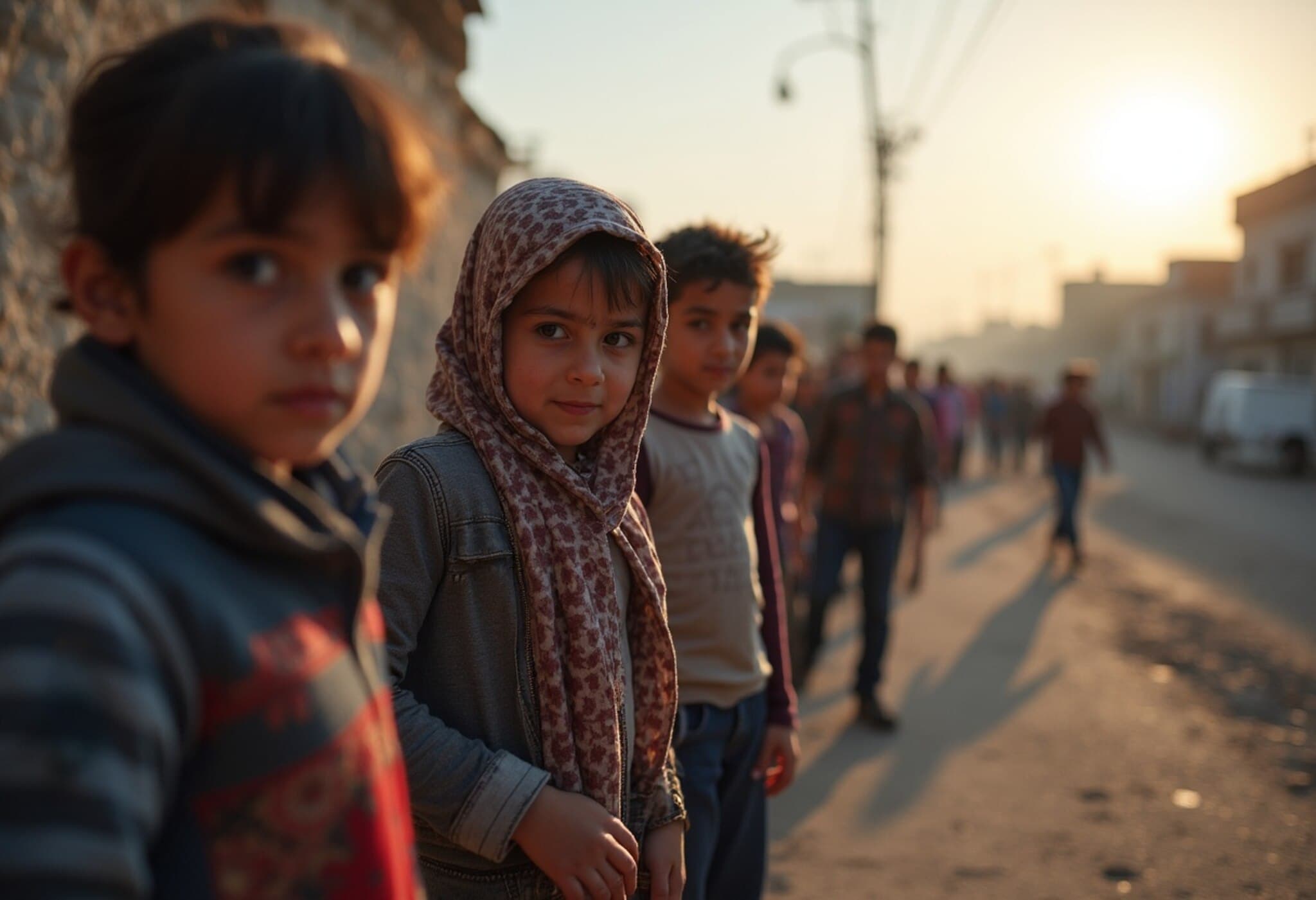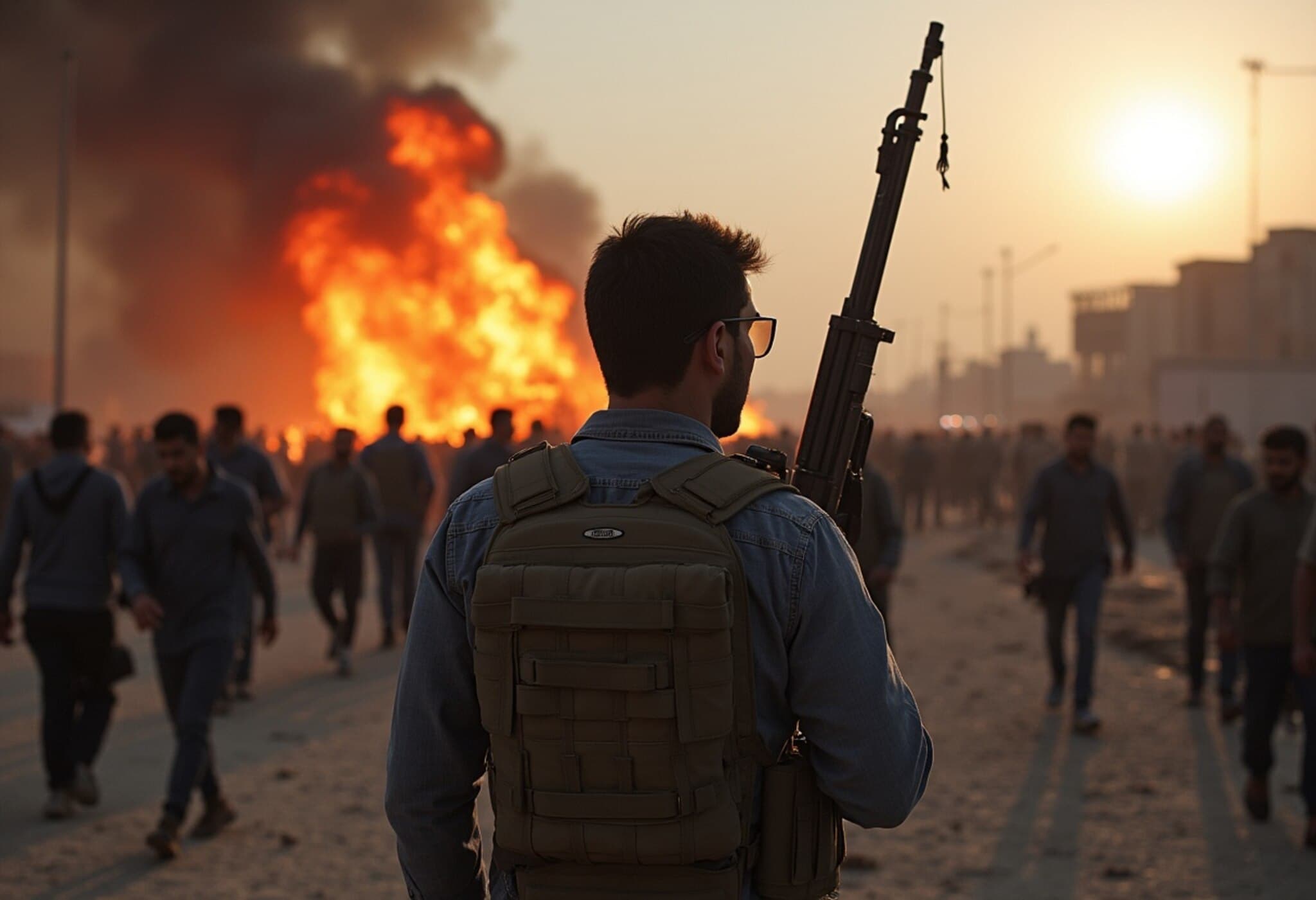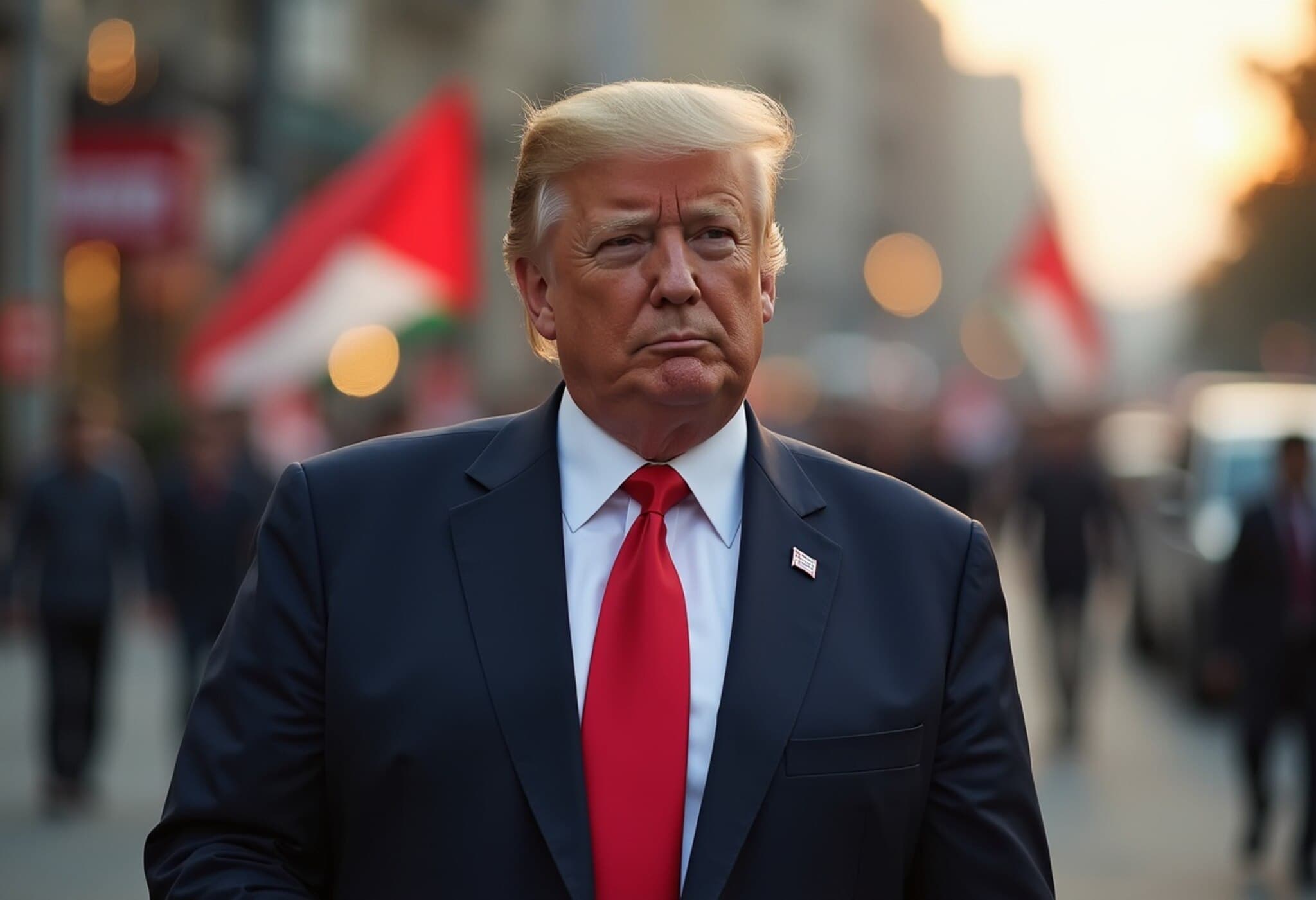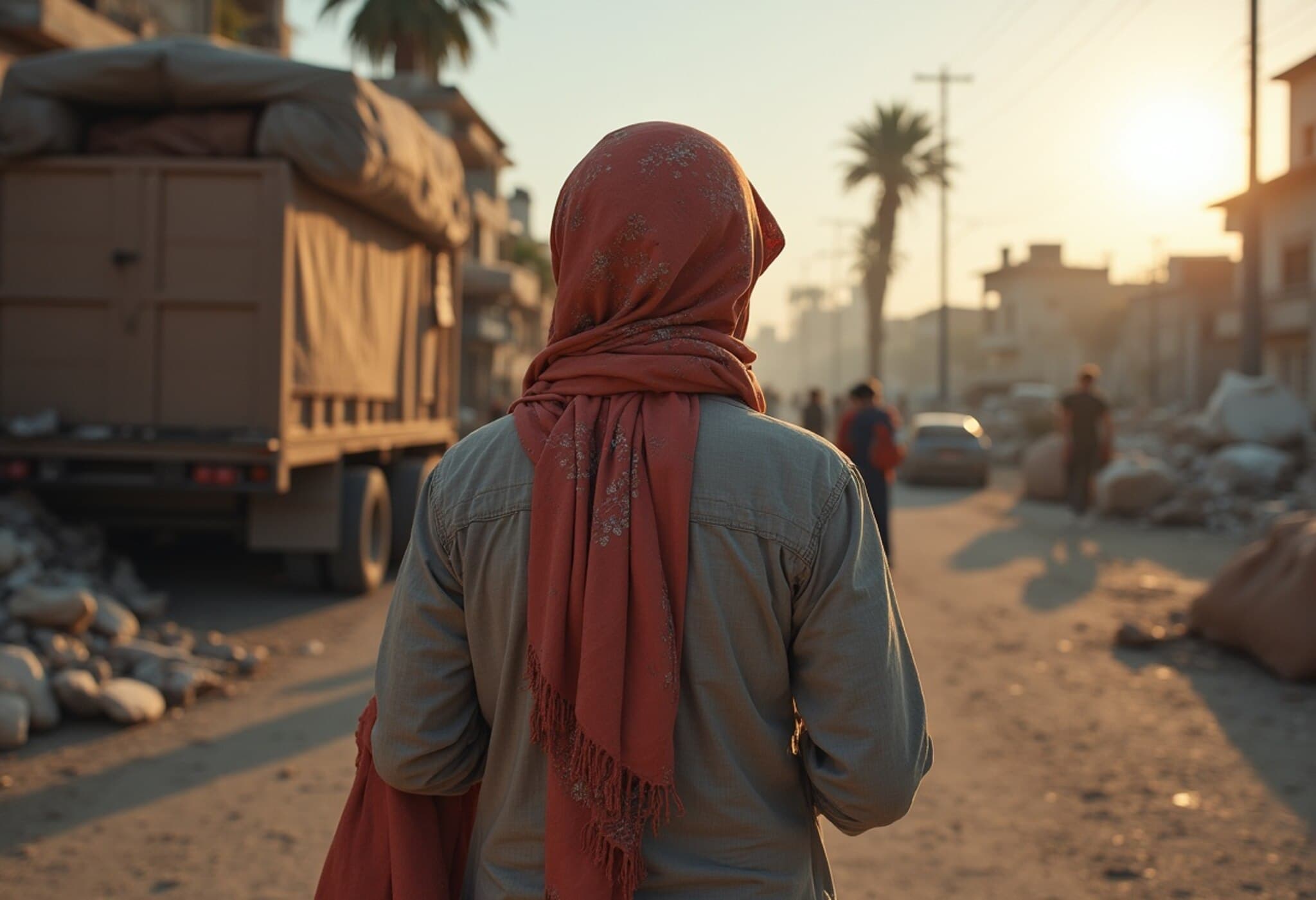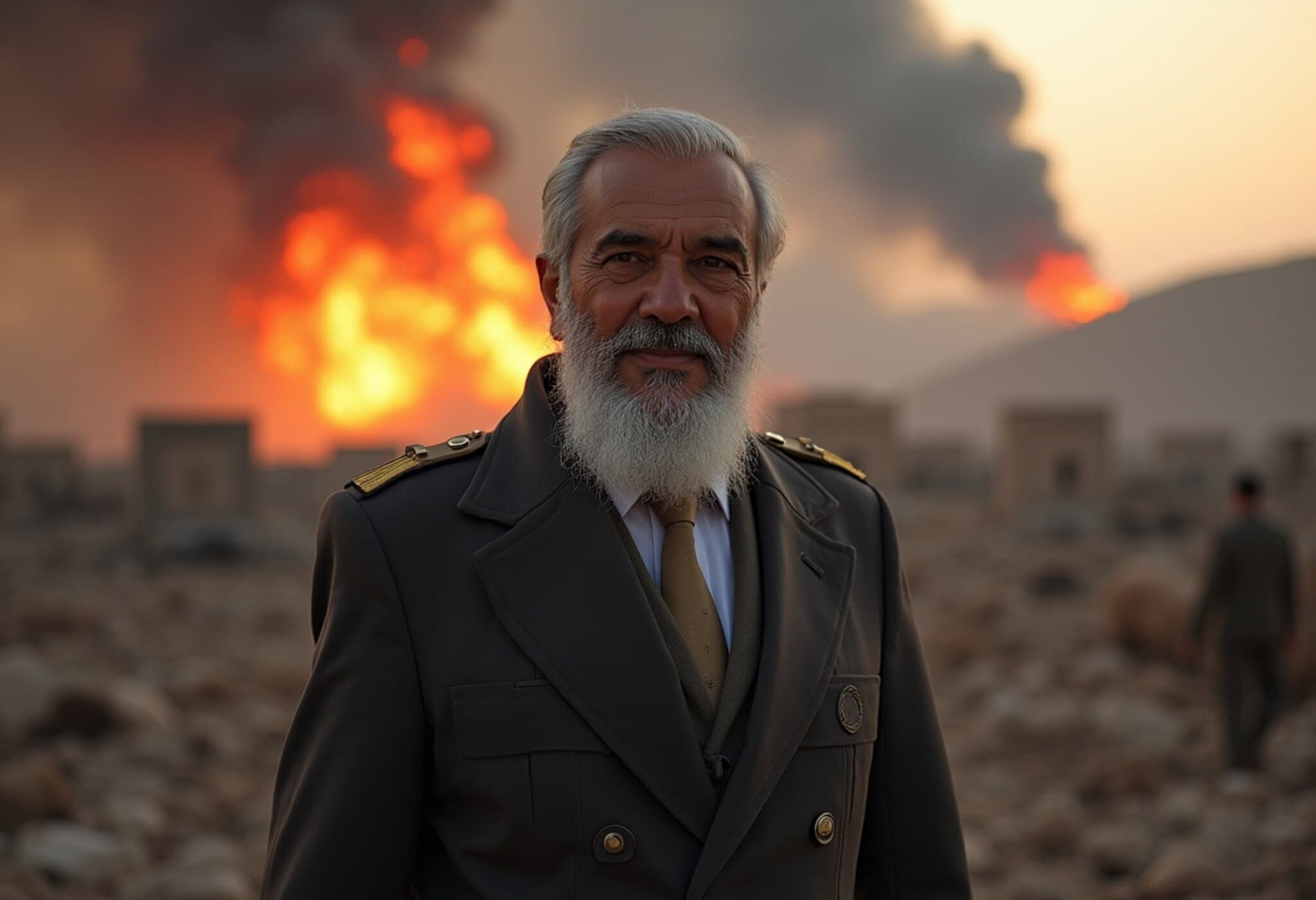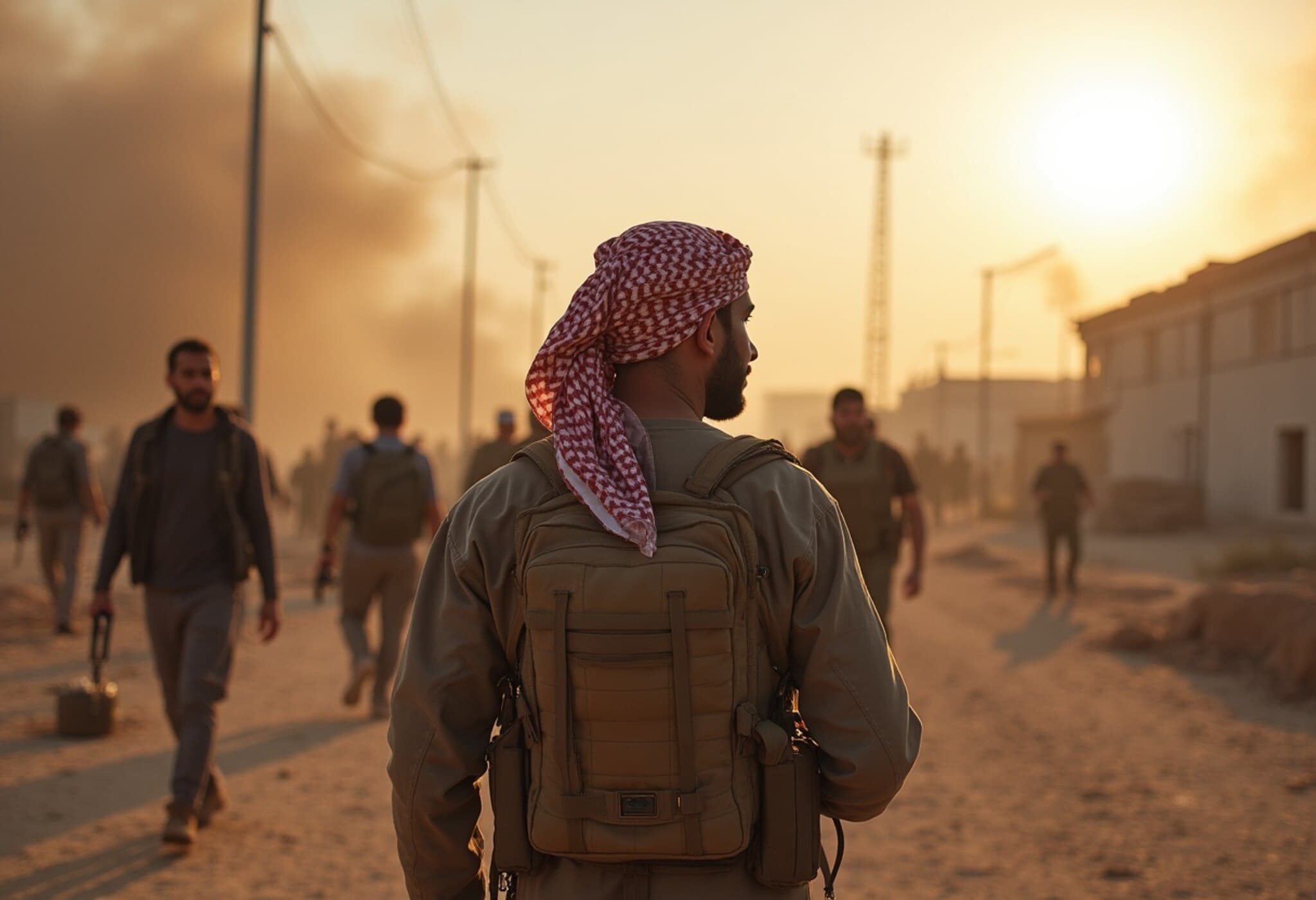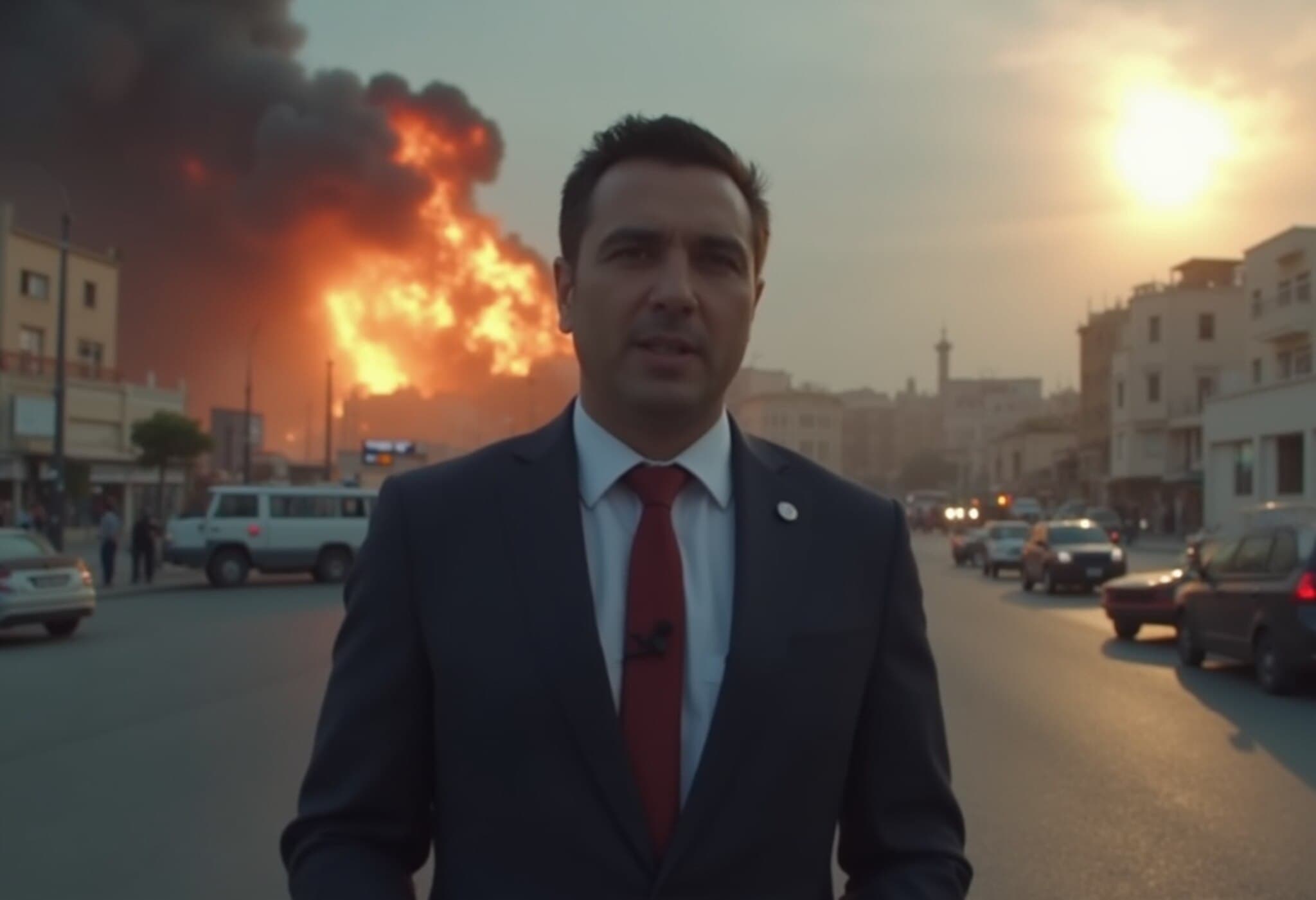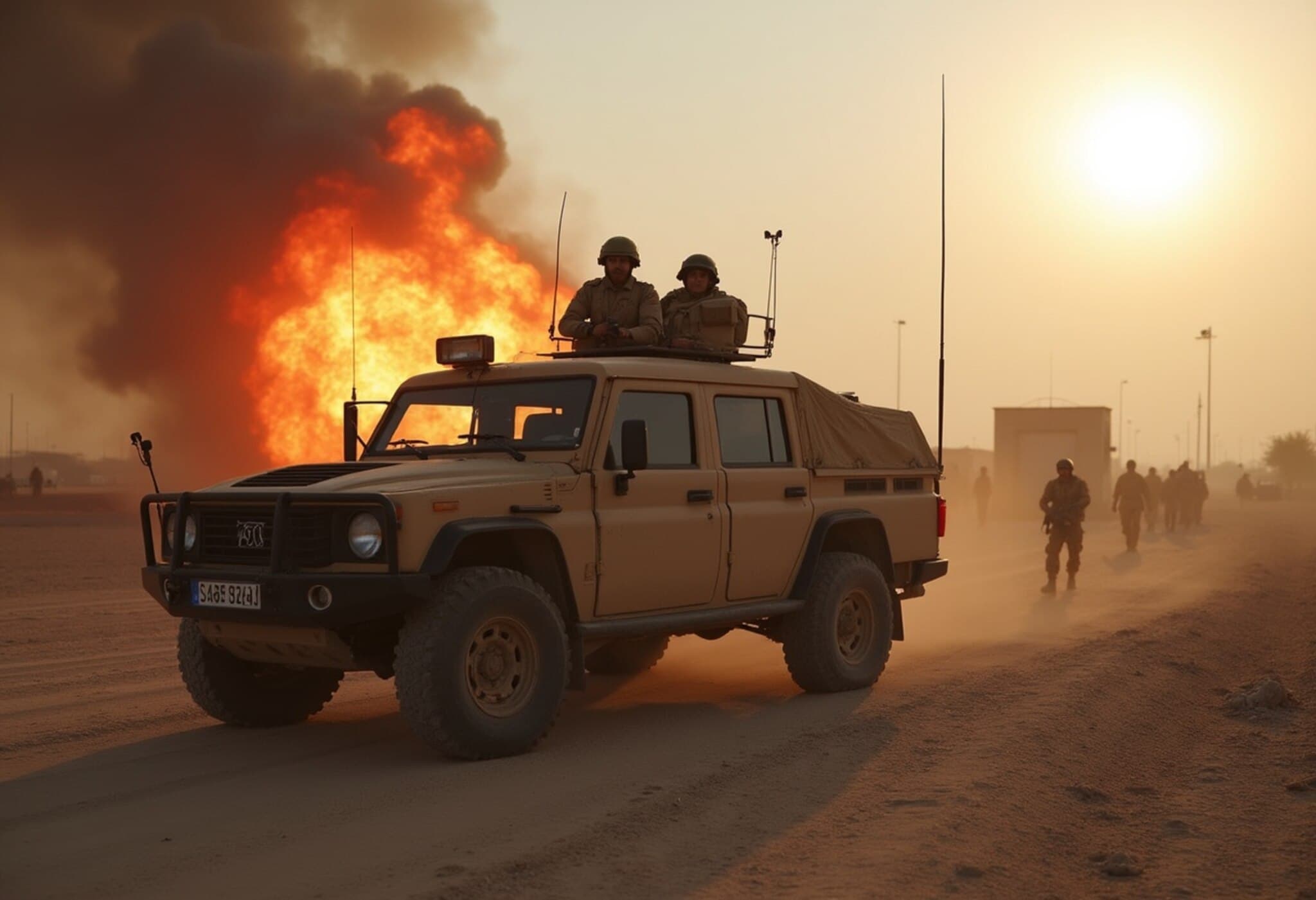Israel Escalates Military Operations in Syria Amid Rising Regional Tensions
On Wednesday, Israel dramatically ramped up its military actions in Syria, launching airstrikes directly on the Syrian military headquarters in Damascus. The Israel Defence Forces (IDF) confirmed the precision strike near the facility's gates, signaling a marked intensification of Israeli operations following days of unrest in southern Syria.
Strategic Strikes and Regional Flashpoints
Alongside the Damascus strikes, Israeli forces conducted additional air operations targeting locations in southern Syria, particularly near Suwayda province. The Israeli military stated it is "prepared for various scenarios" as it responds to unfolding events on the ground.
Images from the strike show plumes of smoke rising from the Syrian Defence Ministry building in Damascus, underscoring the gravity of the attack. These strikes mark an escalation that analysts link to Israel's declared objective of protecting the Druze community — a religious minority with historic ties to Israel.
The Druze Community: A Complex Web of Loyalties and Security Concerns
The Druze people, an Arabic-speaking ethno-religious group primarily found in Syria, Lebanon, and Israel, have long navigated complicated allegiances in the Middle East. Syria’s Druze population is estimated at roughly 700,000, while Israel is home to approximately 150,000 Druze citizens, many of whom serve actively in the Israeli military and often attain senior leadership roles.
Recent clashes between Druze groups and Bedouin tribes in the Suwayda region have further destabilized southern Syria. Reports indicate that nearly 100 people have died in the past several days amid this turmoil, according to the Syrian Observatory for Human Rights. The Syrian government has deployed forces to quell the violence, but the unrest has become a flashpoint for broader geopolitical tensions.
Cross-Border Dynamics and Military Warnings
The IDF reported attempts by some Druze individuals to cross the border between Israel and Syria in both directions. Israel characterized these movements as "serious incidents constituting criminal offenses," warning of increased security risks to both civilians and military personnel.
Israeli Defence Minister Israel Katz issued a stern message, affirming the military’s intent to continue pressing regime forces until they withdraw from the Suwayda area. Katz further warned of "raising the bar of responses" if their warnings go unheeded, reflecting a readiness to escalate military pressure.
International Responses and the U.S. Position
Adding complexity, the United States reportedly urged Israel to curb its airstrikes in Syria. According to an Axios reporter citing anonymous U.S. officials, Israel agreed to pause its strikes on Tuesday evening, though Israeli military actions renewed shortly thereafter.
The U.S. push reflects concerns over regional stability and the risk of wider confrontation, especially amid ongoing efforts to address the prolonged Syrian conflict and geopolitical rivalries involving Iran, Russia, and Turkey.
Future of Israeli-Syrian Relations
Despite the military tensions, diplomatic overtures have surfaced. In a notable shift, Israel recently signaled openness to a peace deal with Damascus. This development appears linked to changes in the U.S. administration’s stance, particularly after President Donald Trump lifted certain sanctions on the Syrian government.
The Golan Heights, annexed by Israel in 1981 but internationally recognized as Syrian territory, remains a critical point of contention. Approximately 20,000 Druze live in this region, many of whom identify culturally and politically with Syria, though younger generations show signs of shifting identities.
Expert Analysis: Unpacking the Regional Stakes
Experts view Israel's military escalation as a strategic maneuver not only to protect vulnerable minority populations but also to counter the influence of Iran-backed militias entrenched in Syria. The complexity of Druze loyalties, Israel’s security doctrine, and the fragile Syrian government create a multifaceted battleground where local conflicts intertwine with broader regional power plays.
American policy analysts emphasize the tightrope Washington walks: balancing support for Israel’s security with concerns over inadvertent escalation that could draw the U.S. deeper into Syrian quagmires.
Editor’s Note
This latest surge in Israeli airstrikes against Syrian military targets underscores the volatile intersection of ethnic, religious, and geopolitical dynamics in the Levant. As Israel pledges protection for minority groups like the Druze amid Syrian instability, questions remain about the sustainability of military interventions as a tool for regional stability. The international community faces pressing choices: pursue diplomatic engagement or risk ongoing cycles of violence that threaten to destabilize an already fragile Middle East.

